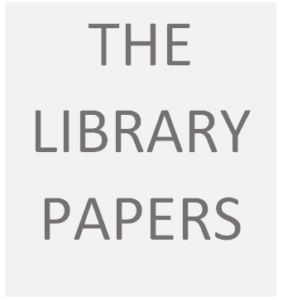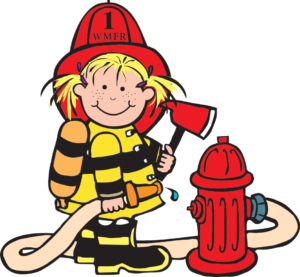Assignment 1: Memoir
How I Learned To Be A Hero(ine)
The story I’m going to tell you is about the first book I fell passionately in love with, at approximately age three: that immortal classic known as “Johnny the Tractor Saves His Family” (or something like that—it’s out of print now so the exact title is lost in the flowing river of time). My father worked in what’s called “agri-biz,” and at this time he was an agent for a large grain-handling corporation. On one particular day, he had encountered a salesman for the John Deere Tractor Company, who gave him this book as part of his company’s well-established advertising strategy, and also presumably as an effort to generate brand loyalty in the upcoming generation of future agri-biz workers.
That salesman and the creators of that book probably didn’t ever envision that this advertising material would be read by a girl. But although I was the proud owner of a carefully curated collection of fairy tales and nursery rhymes selected by my mother, and even though my mother was surprised (dismayed) by my choice, I loved that book like nothing else. It told the story of how, one cold winter night, Johnny the Tractor, who was sleeping in the farm yard, noticed smoke coming from the house of ‘his people,’ fired up his engine, and charged over to sound a warning on his tractor horn. Everyone was saved as the house went up in flames behind them. I think whoever read it to me the first few times must have given a very dramatic reading, because I found that story absolutely compelling.
Thinking back on it, I realize this book has influenced my life in many ways, both as a child and as the reader I have become. When I was a child, deadly house fires were more common on the prairies than they are now: most houses were still heated by coal furnaces at that time—there was a coal cellar and a black and sooty furnace lurking in the basement of our house. Periodically someone had to go and stoke the fire by adding more coal: use the shovel to fill the bucket, open the furnace door carefully because it was hot, shovel the coals in to the burning, smoldering pile, give it a stir with the poker, close the door (and then if you were me, run upstairs as fast as you can away from the smell and the soot and the cobwebs). The heat was carried upstairs by insulated ducts which spread out to the various rooms. The air in the ducts was hot and full of sparks: sometimes if people were careless about maintaining the insulation, controlling the soot, or sweeping up the coal dust, the ducts leaked, sparks escaped, fire ensued. Usually it was the man’s job to stoke the fire, but when my father was away, my mother (and I, I felt) had to do it. We hated it.
So although I lugged ‘Johnny the Tractor’ everywhere, memorized it, and was willing and able to ‘read’ it to anyone who would listen, including all random visitors to our house (in the same way that Olivia ‘reads’ Pete the Cat on YouTube), I now wonder about the reasons for my fascination, since I also remember having nightmares about fire and having to rescue my mother and little brother from the rubble of our house, just like Johnny the Tractor. I think it wasn’t the story that caused the nightmares, but rather that Johnny represented a timely solution to the complex problem I was just becoming aware of—how to survive in a potentially dangerous world when you are small. I learned that you can take purposeful effective action and even be a brave hero(ine) to boot. Exactly as Maurice Sendak says in his PBS interview. For me, ‘Johnny the Tractor’ had the answer.
I learned other things from that book, not just from the story itself, but from the story about the story: when he brought the book home, I eavesdropped as my father and mother laughed about the poor tractor salesman and his misguided efforts to sell farm equipment through children—I started to learn about advertising and how it works; I remember my father expressing regret about the declining fortunes of the venerable Canadian farm equipment manufacturer Massey Ferguson in the face of more aggressive competition from the American-owned John Deere (my father talked about this not just once but many times, in conversations with other adults, on which I also eavesdropped, and then later when I was older, with me)—I started to understand things about business and trade and nationalism. These are ideas I have been and continue to be interested in to this day. And also ideas I absorbed implicitly about environmental damage and protection, and problem-solving approaches to life situations have roots in that story.
From this experience I draw two conclusions:
- Try though we might, adults have no real control over the random information that ends up influencing our children.
- Written stories are part of the multi-modal flow of information and action that constitutes our lives physically and mentally—we give and take from this stream on an as-needed basis. It is difficult to draw a bright line between the word and the world.
References:
accessed January 21, 2017
accessed January 21, 2017
accessed January 21, 2017.
Note: the book I am referring to in this story is no longer in print, I can’t find any publishing information about it, and it’s not clear whether John Deere is even still publishing children’s books (although they are still creating products targeted at children, but just not books). However I remember reading somewhere a few years ago that John Deere has been using children’s materials as an integral part of their advertising strategy since the 1930’s.




